第214章 THE SIXTH ENNEAD(6)
But if Quality is determined by formation and characteristic and Reason-Principle, how explain the various cases of powerlessness and deformity? Doubtless we must think of Principles imperfectly present, as in the case of deformity.And disease- how does that imply a Reason-Principle? Here, no doubt, we must think of a principle disturbed, the Principle of health.
But it is not necessary that all qualities involve a Reason-Principle; it suffices that over and above the various kinds of disposition there exist a common element distinct from Substance, and it is what comes after the substance that constitutes Quality in an object.
But triangularity is a quality of that in which it is present;it is however no longer triangularity as such, but the triangularity present in that definite object and modified in proportion to its success in shaping that object.
11.But if these considerations are sound, why has Quality more than one species? What is the ground for distinguishing between habit and disposition, seeing that no differentia of Quality is involved in permanence and non-permanence? A disposition of any kind is sufficient to constitute a quality; permanence is a mere external addition.It might however be urged that dispositions are but incomplete "forms"- if the term may pass- habits being complete ones.But incomplete, they are not qualities; if already qualities, the permanence is an external addition.
How do physical powers form a distinct species? If they are classed as qualities in virtue of being powers, power, we have seen, is not a necessary concomitant of qualities.If, however, we hold that the natural boxer owes his quality to a particular disposition, power is something added and does not contribute to the quality, since power is found in habits also.
Another point: why is natural ability to be distinguished from that acquired by learning? Surely, if both are qualities, they cannot be differentiae of Quality: gained by practice or given in nature, it is the same ability; the differentia will be external to Quality; it cannot be deduced from the Ideal Form of boxing.Whether some qualities as distinguished from others are derived from experience is immaterial; the source of the quality makes no difference- none, I mean, pointing to variations and differences of Quality.
A further question would seem to be involved: If certain qualities are derived from experience but here is a discrepancy in the manner and source of the experience, how are they to be included in the same species? And again, if some create the experience, others are created by it, the term Quality as applied to both classes will be equivocal.
And what part is played by the individual form? If it constitutes the individual's specific character, it is not a quality; if, however, it is what makes an object beautiful or ugly after the specific form has been determined, then it involves a Reason-Principle.
Rough and smooth, tenuous and dense may rightly be classed as qualities.It is true that they are not determined by distances and approximations, or in general by even or uneven dispositions, of parts; though, were they so determined, they might well even then be qualities.
Knowledge of the meaning of "light" and "heavy" will reveal their place in the classification.An ambiguity will however be latent in the term "light," unless it be determined by comparative weight: it would then implicate leanness and fineness, and involve another species distinct from the four [of Aristotle].
12.If then we do not propose to divide Quality in this [fourfold]
manner, what basis of division have we?
We must examine whether qualities may not prove to be divisible on the principle that some belong to the body and others to the soul.
Those of the body would be subdivided according to the senses, some being attributed to sight, others to hearing and taste, others to smell and touch.Those of the soul would presumably be allotted to appetite, emotion, reason; though, again, they may be distinguished by the differences of the activities they condition, in so far as activities are engendered by these qualities; or according as they are beneficial or injurious, the benefits and injuries being duly classified.This last is applicable also to the classification of bodily qualities, which also produce differences of benefit and injury: these differences must be regarded as distinctively qualitative; for either the benefit and injury are held to be derived from Quality and the quale, or else some other explanation must be found for them.
A point for consideration is how the quale, as conditioned by Quality, can belong to the same category: obviously there can be no single genus embracing both.
Further, if "boxer" is in the category of Quality, why not "agent"as well? And with agent goes "active." Thus "active" need not go into the category of Relation; nor again need "passive," if "patient" is a quale.Moreover, agent" is perhaps better assigned to the category of Quality for the reason that the term implies power, and power is Quality.But if power as such were determined by Substance [and not by Quality], the agent, though ceasing to be a quale, would not necessarily become a relative.Besides, "active" is not like "greater": the greater, to be the greater, demands a less, whereas "active" stands complete by the mere possession of its specific character.